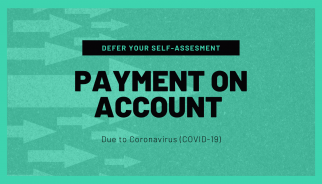
In line with the further extension of the CJRS furlough scheme for employees the chancellor has also set out further…

In line with the further extension of the CJRS furlough scheme for employees the chancellor has also set out further…

Self-employment is quickly becoming an area of interest for many people. It’s not surprising really when you hear that UK…

Would you trust your life to someone who was not a doctor? Would you be defended in court without a…
Working from home relief = FREE CASH Due to the current pandemic, many businesses have been working from home this…

Ask HMRC to verify you had a new child which affected your eligibility for the self-employed income support scheme. If…

Choose how and when you can delay making your second payment on account for the 2019 to 2020 tax year….

Sole Traders to get second grant from the Government. The government’s Self-Employment Income Support Scheme will be extended, giving more…

The portal opens this week to claim your grant is you are self-employed. This is capped as a taxable lump…

The help and advice that is available from the Government is forever changing. This is the latest update we have…

How to preserve your cashflow during COVID-19 As the saying goes, turnover is vanity, profit is sanity and cash flow…